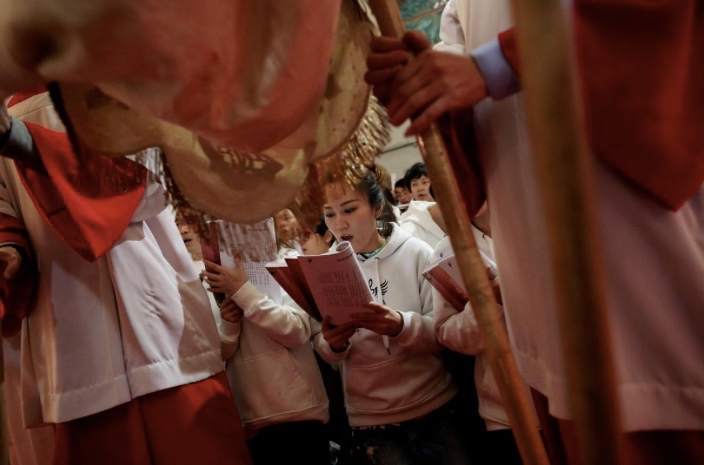Beijing insists on control over religion, dampening chances of China-Vatican deal
There is no religion above the state, a Chinese official has said, dampening hopes of an imminent deal between Beijing and the Vatican over the appointment of bishops.
Chen Zongrong told reporters that China would not allow any foreign interference in religious affairs, reiterating the government's desire to tightly control religious organisations.

'I think there is no religion in human society that is above the state,' Chen said according to the New York Times. His department, the State Administration for Religious Affairs, is being absorbed into a branch of the Communist Party.
'Religion must adapt to the society it is in,' he added. 'If a religion is incompatible with its society, this religion cannot survive and develop.'
The comments, made in a religious affairs briefing, would seem to put a roadblock on the prospect of a deal with the Catholic Church after reports the Vatican would make concessions to Beijing – including by asking two 'underground' bishops to step aside – in exchange for keeping some influence over those who are chosen in the future.
Diplomatic relations between the two have officially been broken off since 1951, two years after the Communist takeover. China allows some Catholic churches to operate, under the state's watchful eye, but the Vatican does not recognise its bishops who are appointed by the authorities and not by the Church.
The possibility of a deal is met with opposition by Chinese Catholics and a number of 'underground' church leaders in China.
Cardinal Joseph Zen, the Chinese former bishop of Hong Kong, has blasted the deal accusing Vatican officials of 'selling out' to the regime.
He blamed the pope's advisers for what he said is a 'bad deal' which 'compromises without limits' yet gains little in return.
Zen said that Pope Francis 'has never had direct knowledge of the Chinese Communist Party and, moreover, is poorly informed by the people around him'.











